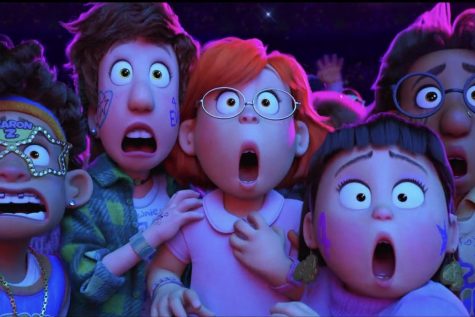Matt Damon’s “The Martian” Is An Out of This World Experience
Released a little more than two months ago, movie critics across the nation are still recommending director Ridley Scott’s “The Martian” as a must-see for movie-goers. “The Martian” kicks off with a manned mission to Mars, where astronaut Mark Watney is presumed dead after being swept away by a sand storm. His crew, believing that Watney is dead, abandons him on Mars. However, Watney awakens and finds himself stranded on the hostile planet. With little supplies and deflating hope, Watney has to depend on his ingenuity, wit, and spirit to subsist and find a way to signal to Earth that he is alive.
Millions of miles away, NASA and a team of international scientists work relentlessly to bring the Martian back home. As the story unfolds, the world comes together to root for Watney’s safe return from Mars to Earth.
Without a doubt, the film is breathtaking as the dramatic storyline keeps the audience on the edge of their seats. But it is
not only the suspense that excites the audience, it is also the scientific accuracy that drags even the most savvy scientists into its dramatic storyline. In addition to the extraordinary storyline, the settings are on another level of detail, making them quite immersive, even to the extent of the film looking as if it were actually filmed on Mars. And to ease the burden brought by the solitude of the astronaut Mark Watney, the surprisingly accurate mechanics of the space capsule and the fact that Watney to get himself out of sticky situations in a realistic fashion also intrigues the audience.
“The Martian” is based on a novel written by Andy Wier, which uses a lot of scientific jargon. Wier blends intriguingly
accurate talk that not only appeals to the sci-fi audience, but the scientific community as well. In the novel and in the movie, astronaut Watney faces a shortage of food, so he develops an oxygenator that audiences were pleased with since he designed it using legitimate concepts and techniques. If anything, the film’s shrewd way of using scientific roots in presenting the storyline transcends past the expectations of the stereotypical sci-fi movies. This is a key factor to the film’s popularity and rave reviews.
“As far as scientific accuracy, I think it [“The Martian”] is more accurate than ‘Interstellar,’” physics teacher Ryan Pettibone said.
“Interstellar” was 2014’s huge sci-fi blockbuster that was raved for its scientific accuracy in the less-understood black holes. But in 2015, “The Martian” proved itself to be well up there with the quintessential sci-fi movies while setting itself
apart with its own unique style.“The Martian” remains unique by taking the hypercomplex science behind space and shaping it to be more straightforward and understandable, especially for the unsavvy scientists amongst the audience.
“I loved it. I would definitely recommend it. Five out of five stars,” Pettibone said.
“The Martian” has definitely struck a chord in the realm of science-passionate movie-goers. Once again, another great sci-fi movie with a keen usage of scientific accuracy has topped off the movie charts and has sparked interest in those curious about our misunderstood neighbor—Mars.
Donate to The Wolfpacket
$85
$500
Contributed
Our Goal
Hello there! Our goal is to provide relavent, engaging journalism for readers of all ages. Your donation will support the student journalists of the Wolfpacket at Claremont High School, and will allow us to purchase equipment, print our monthly issues, and enter in journalism competitions. We appreciate your consideration!






